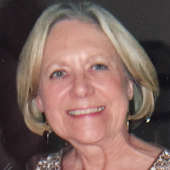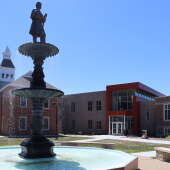- A lady of noble lineage (4/27/24)
- Deane: Cape's premier architect of the 19th century (3/16/24)
- Louis Lorimier's death and consequences to the city, Part 2 (2/10/24)
- Pierre-Louis de Lorimier: Founder of our city, Part 1 (1/6/24)
- Kage House represents family legacy (12/2/23)
- The Haas family: Last chapter of Lacey property, Part 2 (10/28/23)
- The Lacey-Haas home and tragedy, Part 1 (9/23/23)
Zerilda Hays Byrne: A lady of noble lineage, Part 2

This document dated Dec. 20, 1864, shows Zerilda Byrne received $232.50 in property from Peter Byrne's estate, as well as $1,613.50, possibly proceeds from a large auction held after Peter's death in October 1864.
Submitted
I continue with the Byrne family. Zerilda, the daughter of Cape Girardeau District Sheriff John Hays and her husband, Judge Peter Byrne, lived on their sizable plantation named Whitehall near the Elmwood estate of Louis Houck.
As did their Houck neighbors, the Byrne couple managed their plantation through slave labor. At the time of Peter’s death, probate records show Whitehall was the home of eight slaves: Joe, Mary, Alice, Lizzy, Jane, Felia, Charley and Derry. Another slave, Abraham, was inherited by Zerilda when her father John died in 1836.
Of Irish Catholic roots, Peter was the son of pioneer Morgan (who fought in the Irish Rebellion 1796) and Jane Green Byrne of New Madrid. They moved to Cape Girardeau County, where Peter’s parents died. Peter’s siblings were Luke, Maria Louise, Napoleon, Mary, Elinor Ann and Elizabeth Jane. Peter’s brothers and parents also owned slaves. Further information from Edison Shrum’s book, "Slave and Slave Owners": "Elizabeth married Charles, the servant of Ben Horrell; Zeno married Linda; and Jane married Dennis, a servant of Susan Giboney."

Peter Byrne signed a promissory note Sept. 12, 1863, pledging to pay Andrew Giboney $823.50 a year after that date.
Submitted
From the De Paul University, founded by the Vincentians, library research shows that the Vincentians owned and rented slaves at St. Mary’s of the Barrens in Perryville, established in 1830 by Father Joseph Rosati, who later became Bishop Rosati in St. Louis: "In 1853, Peter Byrne, layman, paid $2,250 to the Vincentians for five people, one of the men was Zeno (Fenwick) Byrne, who enrolled in the U. S. Colored Troops during the Civil War."
During the Civil War, an incident occurred that was reported in the Cape Girardeau Weekly Argus on July 9, 1863, titled, "Negro attack on the residence of Judge Byrnes." The article is paraphrased: "Six negroes approached the house at 10 Sunday night, heavily armed with muskets, bayonets and repeaters demanding the Judge’s negroes go with them to Cape Girardeau. The leader was one of the judge’s runaways. They loudly explained it was a special order. The slaves were to pack all their belongings in a wagon and go with them. The Judge Byrnes did not leave the home; however Zerilda (being raised around tribes, Shawnee and Delawares, showed no fear) stepped outside to see what was transpiring. The men told her they didn’t want to meddle with a woman, but would shoot any man who interfered. Later, the six were arrested and awaited process of the Civil Law." (From the Cape Girarddeau County probate files of Peter Byrne.)
Peter Byrne died on Oct. 14, 1864, a lifelong Catholic. He was baptized by the Rev. John Timon of St. Vincent’s Church on October 4, 1827. At this time the Catholics were meeting in a warehouse of Louis Lorimier as their temporary church until the completion of the church in 1838. Zerilda was also a very devoted Catholic.
As a widow, Zerilda purchased many items from Peter’s estate sale and continued to live in her beloved home, Whitehall, until her dying day. At the age of 76, Zerilda Byrne died on Oct. 16, 1888, "loved by all."
































Respond to this story
Posting a comment requires a subscription.